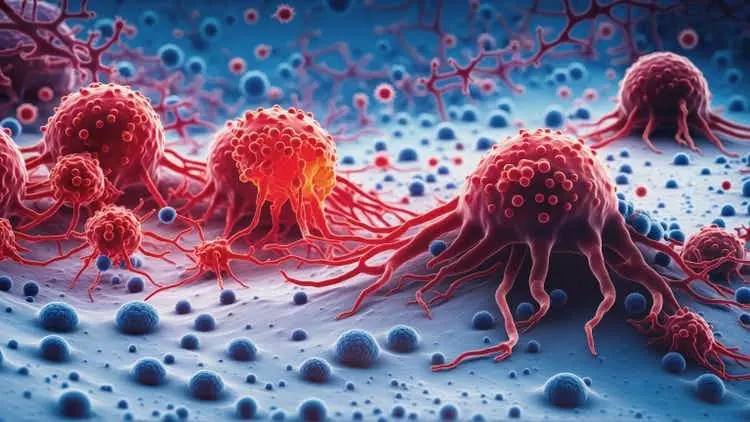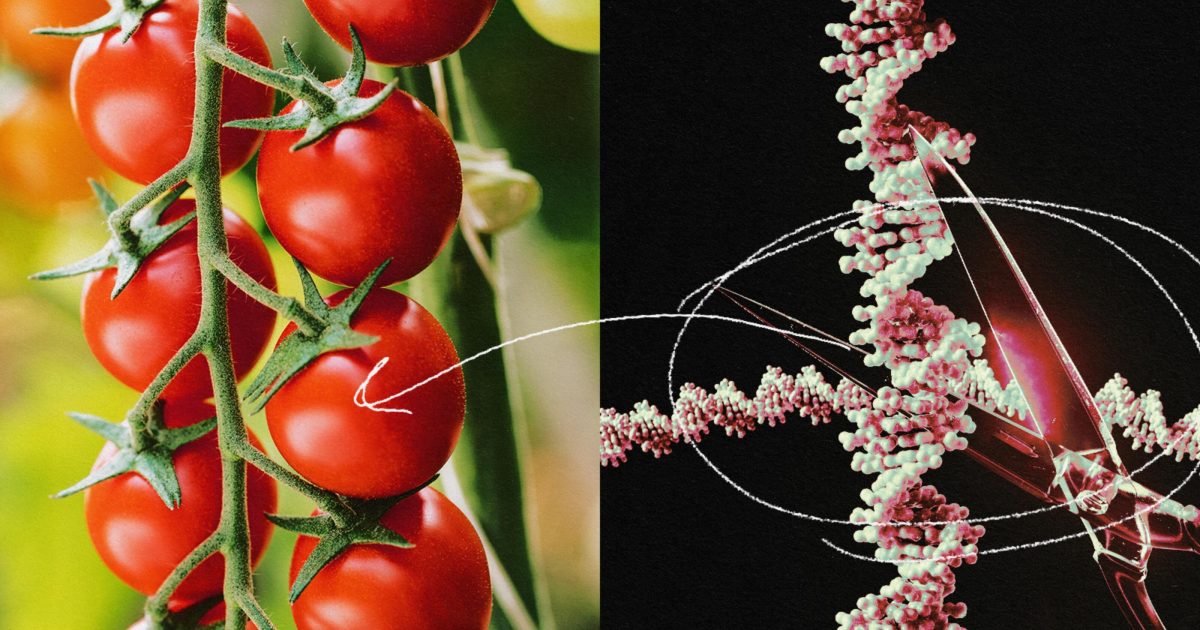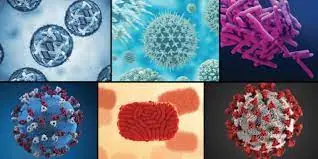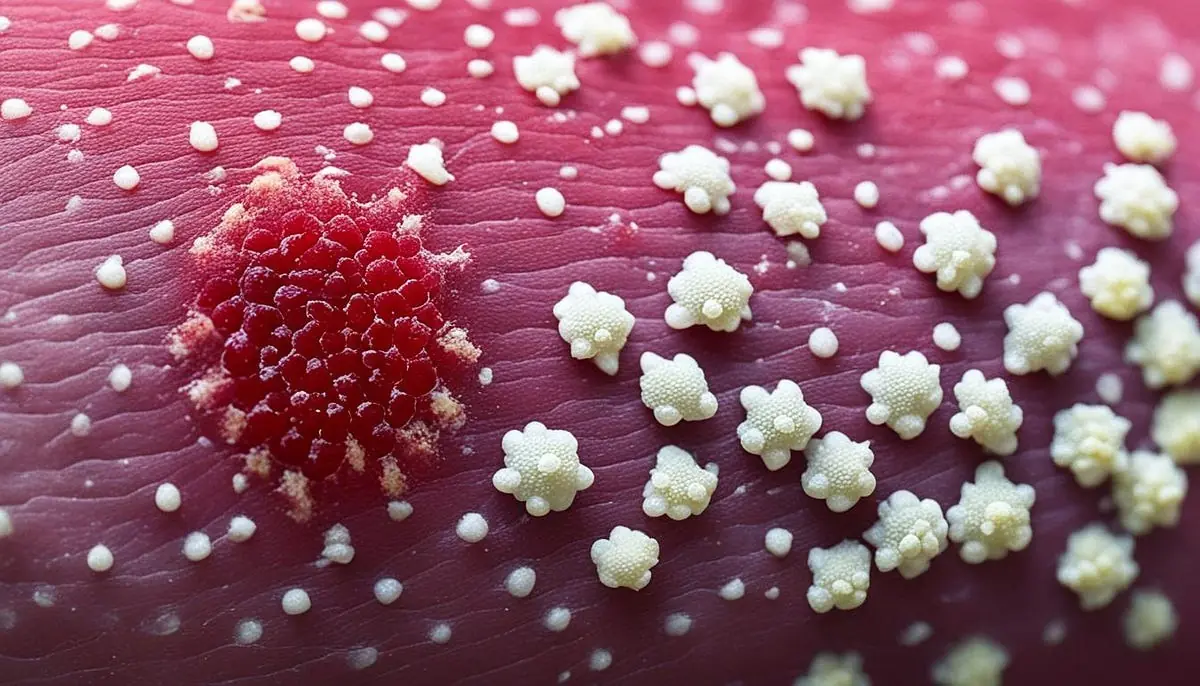
A Single Tomato Has Over 12,000 More Genes Than a Human
A Single Tomato Has Over 12,000 More Genes Than a Human

When we think about the complexity of life, it's easy to assume that humans, with our advanced brains and intricate systems, would have the most sophisticated genetic makeup. However, a surprising revelation from the field of genomics has challenged that assumption: a single tomato contains over 12,000 more genes than a human. This fascinating discovery raises questions about the complexity of plant life and underscores the hidden intricacies of the natural world.
The Tomato Genome: More Genes Than We Thought
Humans have approximately 20,000-25,000 genes, the instructions that govern our biological processes, from the functioning of our organs to our physical traits. At first glance, this may seem like a lot of information packed into our DNA. But when scientists sequenced the tomato genome, they discovered something astonishing. The tomato plant (Solanum lycopersicum) has around 35,000 genes—over 12,000 more than the human genome.
This revelation may seem puzzling at first. How can a relatively simple plant like a tomato possess more genetic information than a highly evolved organism like a human? The answer lies in the way different species use their genes. While humans rely on a smaller number of highly specialized genes for complex functions, plants like tomatoes have a broader set of genes that help them adapt to their environment in a variety of ways.
The Role of Genes in Plants
While humans use their genes primarily to control the development and functions of organs like the heart, lungs, and brain, plants like tomatoes use their genes to handle a range of environmental challenges. Tomatoes, for example, need genes that help them respond to light, temperature changes, soil conditions, and even threats from pests and diseases. Their genetic diversity allows them to adapt to a wide range of conditions, ensuring their survival and growth in diverse environments.
Many of the additional genes found in tomatoes are involved in processes such as photosynthesis, which converts sunlight into energy, or the production of secondary metabolites like antioxidants, which protect the plant from stress and damage. These extra genes help the tomato plant thrive in conditions where humans might not, and even allow the plant to produce fruit—something that requires a unique set of biological instructions.
The Importance of Understanding Plant Genomes
Understanding the tomato genome—and plant genomes in general—has important implications for agriculture and food security. By mapping the genes that enable tomatoes to grow, resist diseases, and produce fruit, scientists can develop more resilient and productive crops. This could lead to genetically modified tomatoes that are better suited to withstand climate change, pests, or diseases, ultimately improving food supply chains and reducing crop losses.
Moreover, plants like tomatoes have evolved over millennia to contain complex, highly specialized systems that allow them to thrive. By studying their genetic makeup, researchers can uncover valuable insights into how plants have adapted to their environment and how similar strategies could be applied to other crops or even to medical research.

Why Do Plants Have More Genes?
The reason plants like tomatoes have more genes than humans comes down to evolutionary history. Over time, plants have developed vast and complex genetic systems to adapt to their surroundings, while humans have evolved more specialized genes to manage the intricate functions of our bodies. Plants also benefit from having larger genomes, as they rely on a wider variety of processes to respond to changes in their environment.
For example, plants are stationary organisms that must respond to changes in their surroundings—such as fluctuating temperatures, varying amounts of water, and exposure to sunlight—by altering their biological processes. To do so, they require a broader range of genes that control everything from growth to stress resistance.
Conclusion
The fact that a single tomato has over 12,000 more genes than a human is a reminder of the complexity of the natural world. It highlights how plants, despite being seemingly simple organisms, possess remarkable genetic systems that enable them to thrive in diverse environments. While humans may have fewer genes, we are not necessarily more genetically complex—our genes are just specialized for the intricate functions required to sustain a highly developed organism. The study of plant genomes, like that of the tomato, continues to provide valuable insights that could shape future agricultural practices and even inform medical research. In the end, the tomato's expansive genetic toolkit serves as a testament to the diversity of life on Earth and the incredible ways that different species have adapted to their surroundings.
News in the same category


Terminally Ill Man is Warning Others to Not Make The Same Mistake He Made

10 Natural Home Remedies To Help Lower High Blood Pressure

Scientists have discovered a key genetic factor that explains why women’s brains age at a different rate than men’s.

Experts who predicted covid say new virus appearing in US could threaten 'all of mankind'

Why Your Brain ‘Blinds’ You for Two Hours Each Day

11 Reasons Why You Have Red Dots On Your Skin

The Benefits and Potential Dangers of Eating Tilapia Fish

Cancer Doctor Reveals ‘Common Theme’ Seen Regularly In Patients Before Diagnosis

How Often Should You Change Your Underwear?

WHO issues its first-ever reports on tests and treatments for fungal infections

Scientists Have Officially Measured the Speed Limit of Human Thought

How Your Sleeping Position Affects Your Health

Only People With Perfect Color Vision Can Read These Words

What Does It Mean When A Person Who Has Passed Away Appears In Your Dream

Discover the Incredible Health Benefits of Melon Seeds

Are you over 40? LONGEVITY SECRETS You Need to KNOW!

Hidden Benefits of Herbs: This Article Reveals It All!

Over 200 People Are Killed By The “World’s Deadliest Food” Every Year, But Almost 500 Million People Still Eat It

Man Loses Pulse For 45 Minutes, Wakes Up, And Reveals This Spine-Chilling Vision Of Afterlife
News Post

My DIL Shamed Me for Posting a Picture of My 'Wrinkled Body' in a Swimsuit — I Gave Her a Wake-up Call

8 cancer-killing foods you didn't consider!

Terminally Ill Man is Warning Others to Not Make The Same Mistake He Made

10 Natural Home Remedies To Help Lower High Blood Pressure

Scientists have discovered a key genetic factor that explains why women’s brains age at a different rate than men’s.

The Hidden Power of Garlic Peels: Benefits for Your Health, Garden, and More

Experts who predicted covid say new virus appearing in US could threaten 'all of mankind'

Why Your Brain ‘Blinds’ You for Two Hours Each Day

Castor Oil: Discover the Transformative Effects After Just 7 Days

11 Reasons Why You Have Red Dots On Your Skin

The Benefits and Potential Dangers of Eating Tilapia Fish

My 32-Year-Old Son Threw a Wild Birthday Party at My House and Nearly Destroyed It

I Was Looking At a Photo of My Late Wife and Me When Something Fell Out of the Frame and Made Me Go Pale

My Husband Moved Back in with His Mom Because My Cough 'Was Annoying' While I Was Sick with Our Baby – So I Taught Him a Lesson

Cancer Doctor Reveals ‘Common Theme’ Seen Regularly In Patients Before Diagnosis

My Husband Threw $50 at Me and Said, 'Make a Lavish Christmas Dinner for My Family — Don't Embarrass Me!'

My Husband’s Best Friend Moved in Weeks Ago, Expecting Me to Clean after Him – Husband Sided with Him, So I Taught

How Often Should You Change Your Underwear?

WHO issues its first-ever reports on tests and treatments for fungal infections
